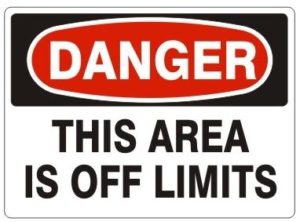Want to ace your next interview and land that job you’ve been seeking? In a competitive job market, proper preparation for the interview is key to winning the assignment!

Here are 20 tips to help you prepare (part 1 of 2).
-
1. Research the industry and company.
-
2. Clarify your “selling points” and the reasons you want the job.
-
3. Anticipate the interviewer’s concerns and reservations.
-
5. Line up your questions for the interviewer.
-
6. Practice, practice, practice.
-
7. Score a success in the first five minutes.
-
8. Get on the same side as the interviewer.
-
9. Be assertive and take responsibility for the interview.
-
10. Be ready to handle illegal and inappropriate questions.

Show what you know! An interviewer may ask how you perceive the company’s position in its market sector or industry, who the firm’s competitors and potential disruptors are, what its strengths and competitive advantages are, where the growth opportunities may lie, and how it should best go forward. Beware trying to thoroughly research a dozen different industries, though…it can easily be overwhelming. Instead focus your job search on just a few industries where you can demonstrate your sincere interest or expertise.
An interview is the best opportunity to showcase why YOU are the right candidate for the open position. Prepare to go into every interview with 3-5 key selling points in mind (and well-rehearsed). What makes you different and the best candidate for the position? Prepare an example of each selling point (“I have good analysis and communication skills. For example, I persuaded an entire group to …”). Be prepared to tell the interviewer why you want THIS specific job – including what interests you most about it, what opportunities or rewards it offers that you find valuable, and what knowledge or abilities it requires that you possess. If an interviewer doesn’t think you’re really, truly interested in the job, he or she won’t give you an offer – no matter how good you are!
The interview process offers hiring managers an opportunity to extensively evaluate candidates. There are always more candidates for positions than there are openings. So interviewers look for ways to screen people out. Put yourself in their shoes and ask yourself why they might not want to hire you.

4. Prepare for common interview questions.
You know they are coming. So how do you prepare? Pick any list and think about questions you’re most likely to encounter, given your age and status (about to graduate, looking for a summer internship). Then prepare your answers so you won’t have to fumble for them during the actual interview.
Sound interested! Come to the interview with a few intelligent questions for the interviewer that demonstrate your knowledge of the company as well as your serious intent. If you fail to ask any questions, the interviewer may conclude that you’re not all that interested in the job or the company. A good all-purpose question is, “If you could design the ideal candidate for this position from the ground up, what would he or she be like?” Another great question is to ask, “What would you like to see accomplished by your next new-hire in his or her first 6 months?”
Great athletes and great artists do it, and you should too. It’s one thing to come prepared with a mental answer to a question like, “Why should we hire you?” It’s another challenge entirely to say it out loud in a confident and convincing way. The first time you try it, you’ll sound garbled and confused, no matter how clear your thoughts are in your own mind! Do it another 10 times, and you’ll sound a lot smoother and more articulate. If you need help, ask a friend or family member to play the role of the interviewer, and get some rehearsal time in before the actual play begins!

First impressions play an outside role in every decision-making process. Studies indicate that interviewers often make up their minds about candidates in the first 5 minutes of the interview – and then spend the rest of the interview looking for things to confirm that decision! So what can you do in those important first minutes? Come in with energy and enthusiasm, and express your appreciation for the interviewer’s time. (Remember: She may be seeing a lot of other candidates that day and may be tired.) Start off with a positive comment about the company – like, “I’ve really been looking forward to this meeting because of ….”
Many interviewers view these meetings as adversarial: Candidates are going to try to pry an offer out of the interviewer, and the interviewer’s job is to hold onto it. Your job is to transform this “tug of war” into a relationship in which you’re both on the same side. You could say something as simple as, “I’m happy to have the chance to learn more about your company and to let you learn more about me, so we can see if this is going to be a good match or not. I always think that the worst thing that can happen is to be hired into a job that’s wrong for you – then nobody’s happy!”
In the end, it’s what YOU say and do that will determine whether the interviewer remembers you, after a long day of meeting with multiple candidates. Perhaps out of the effort to be polite, some candidates become overly passive during job interviews. But politeness doesn’t help demonstrate passion. Don’t make the mistake of just sitting there waiting for the interviewer to ask you about that Nobel Prize you won. It’s your responsibility to make sure she walks away knowing your key selling points and remembering your name.

It’s not supposed to happen, but sometimes it does happen anyway. Interview questions about race, age, gender, religion, marital status, and sexual orientation are inappropriate and (in many cases) illegal. Nevertheless, you may get one or more of them during the interviewing process, either due to poor training or misguided thinking. If you do get such a question, you have a couple of options. You can simply answer with a statement or question (“I’m not sure how that’s relevant to my application”), or you can try to answer “the question behind the question”: “I don’t know whether I’ll decide to have children in the near future, but if you’re wondering if I’ll be leaving my job for an extended period of time, I can say that I’m very committed to my career and frankly can’t imagine giving it up.”
Proper preparation will help lead you to your next step in your career.
Look for Part 2 of this series in an upcoming blog post.
(written by: Donna)

